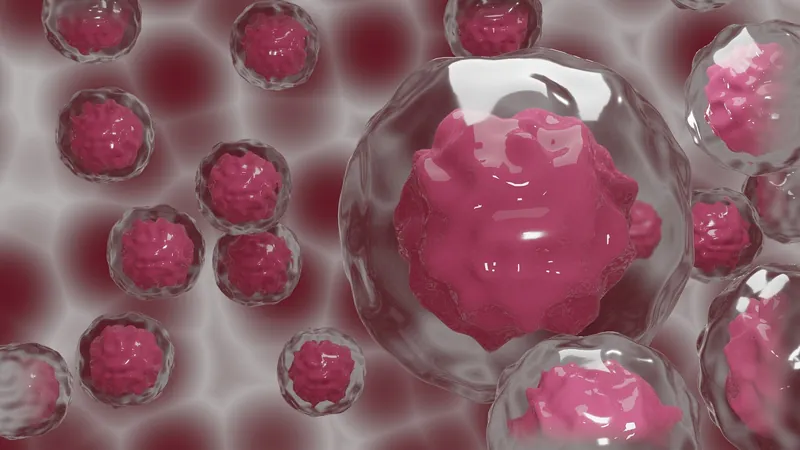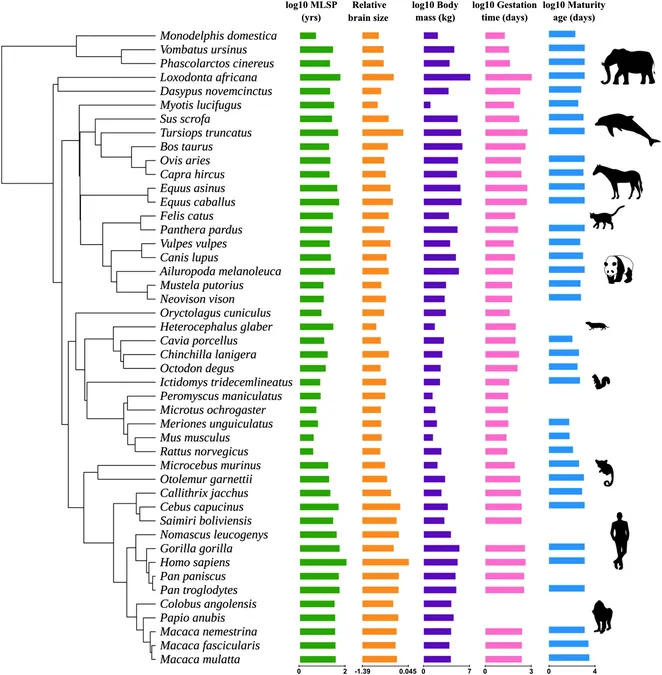
Revolutionary Breakthrough: Scientists Create Game-Changing Cancer Vaccine Using Rare Immune Cells
2025-07-21
Author: Ming
A Groundbreaking Development in Cancer Therapy
In a stunning advance in cancer treatment, researchers at the Icahn School of Medicine at Mount Sinai have engineered a method to produce billions of a rare type of immune cell, known as conventional type I dendritic cells (cDC1s). Published in *Cancer Immunology Research*, this innovative approach could lead to a new class of off-the-shelf cellular cancer vaccines that are more effective and accessible.
Unlocking the Power of cDC1s
These extraordinary dendritic cells are crucial for activating the immune system against tumors, but they naturally occur in very low numbers within the body, making them difficult to harvest. The new serum-free culture technique developed by the Mount Sinai team allows them to generate nearly 3 billion functional cDC1s from just 1 million hematopoietic stem cells (HSCs) sourced from cord blood—a breakthrough that has never been accomplished before.
A Major Leap Toward Universal Cancer Vaccines
Dr. Nina Bhardwaj, the study’s senior author, emphasized the significance of this discovery, stating, "This is a major step toward creating universal cell-based cancer vaccines. Conventional type I dendritic cells are vital for mobilizing the immune response against cancer, but obtaining them in substantial quantities has been a significant hurdle—until now."
Why cDC1s Are Game-Changers in Cancer Treatment
Unlike other dendritic cells, cDC1s have a remarkable capacity for cross-presenting tumor antigens, a critical process for activating T cells that attack cancer. Studies show that having cDC1s in tumors correlates strongly with improved patient outcomes and effectiveness of immune checkpoint inhibitors. However, their numbers and functions often decline in cancer patients.
Validation in Preclinical Models: A Promising Future
Dr. Sreekumar Balan, the study’s corresponding author, highlighted that their method not only amplifies the production of cDC1s but also preserves their ability to stimulate a robust anti-tumor immune response in various preclinical models. This progress opens avenues for developing versatile, off-the-shelf cellular vaccines suitable for multiple cancer types.
A Collaborative Research Effort with Global Implications
The collaboration with the Mater Research Institute in Brisbane, Australia, included using humanized mouse models to verify that these lab-grown cDC1s function effectively as a cancer vaccine. The study marks a pioneering demonstration of scalable, serum-free production of truly functional human cDC1s.
Transforming Cancer Immunotherapy
The implications of this research are vast. It sets the stage for a new form of immunotherapy—a universal cellular vaccine that harnesses the body’s immune system to combat cancer. Since cDC1s are integral to kick-starting fierce T cell responses, this approach could significantly amplify the efficacy of existing therapies, like immune checkpoint inhibitors, and customize treatments for various malignancies.
A New Era in Immune Research
Moreover, this method offers researchers an unmatched opportunity to explore cDC1 biology in both health and disease, unlocking new insights into how these cells contribute to immune surveillance and tumor resistance. Dr. Bhardwaj concluded, "It’s not just about scaling up a cell type; it’s about revolutionizing the design of immune therapies to make them more effective, accessible, and personalized for patients worldwide."




 Brasil (PT)
Brasil (PT)
 Canada (EN)
Canada (EN)
 Chile (ES)
Chile (ES)
 Česko (CS)
Česko (CS)
 대한민국 (KO)
대한민국 (KO)
 España (ES)
España (ES)
 France (FR)
France (FR)
 Hong Kong (EN)
Hong Kong (EN)
 Italia (IT)
Italia (IT)
 日本 (JA)
日本 (JA)
 Magyarország (HU)
Magyarország (HU)
 Norge (NO)
Norge (NO)
 Polska (PL)
Polska (PL)
 Schweiz (DE)
Schweiz (DE)
 Singapore (EN)
Singapore (EN)
 Sverige (SV)
Sverige (SV)
 Suomi (FI)
Suomi (FI)
 Türkiye (TR)
Türkiye (TR)
 الإمارات العربية المتحدة (AR)
الإمارات العربية المتحدة (AR)